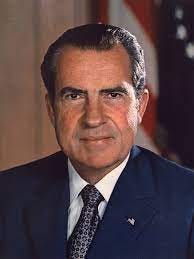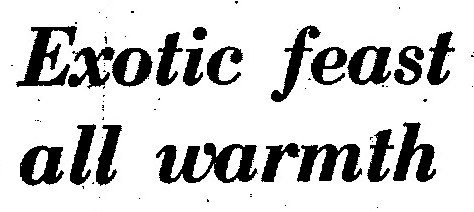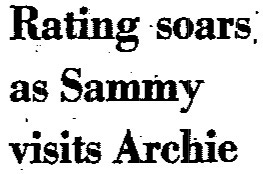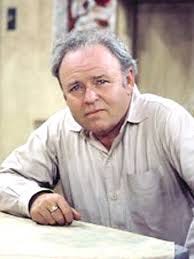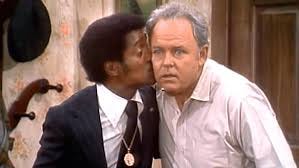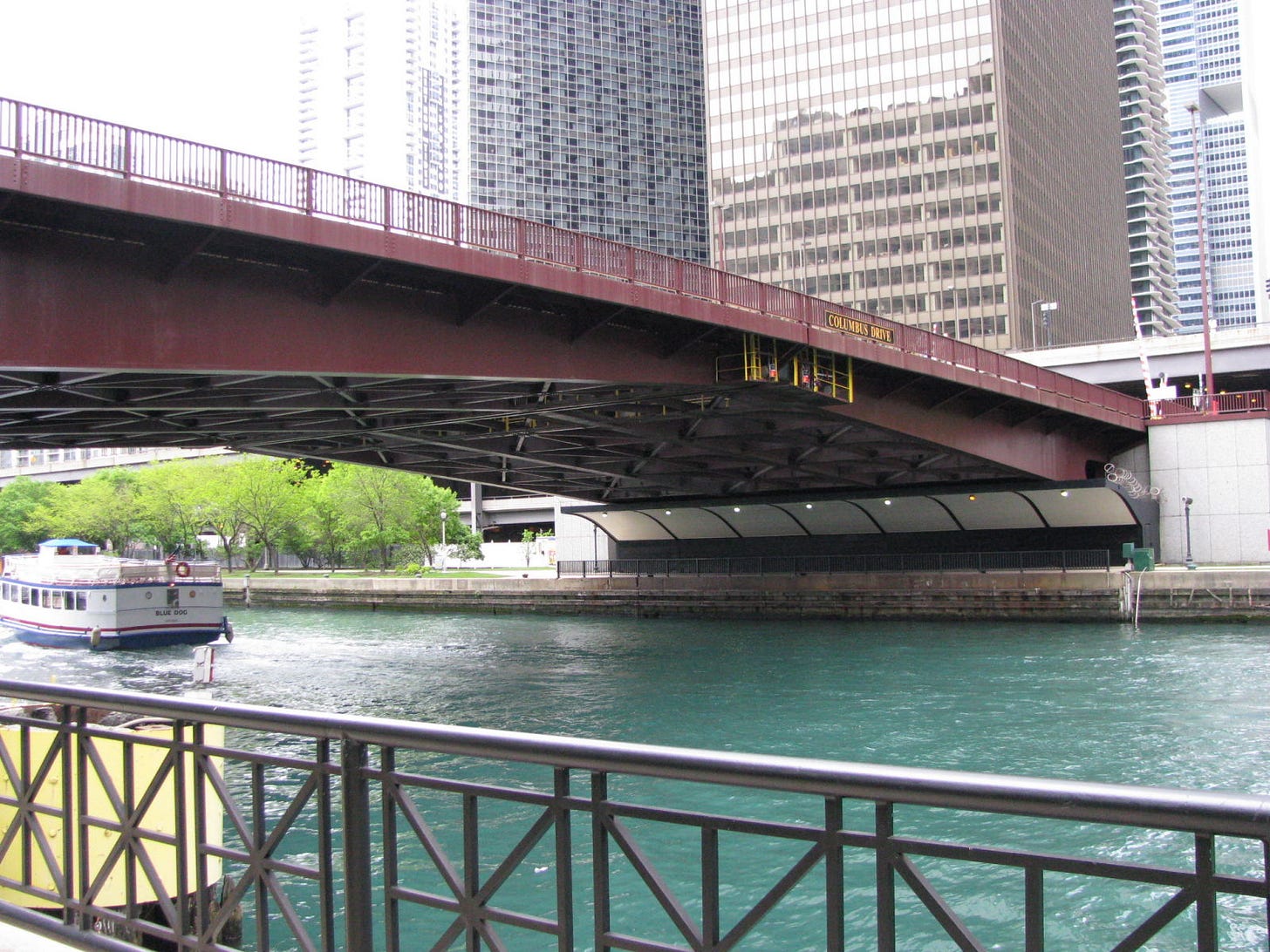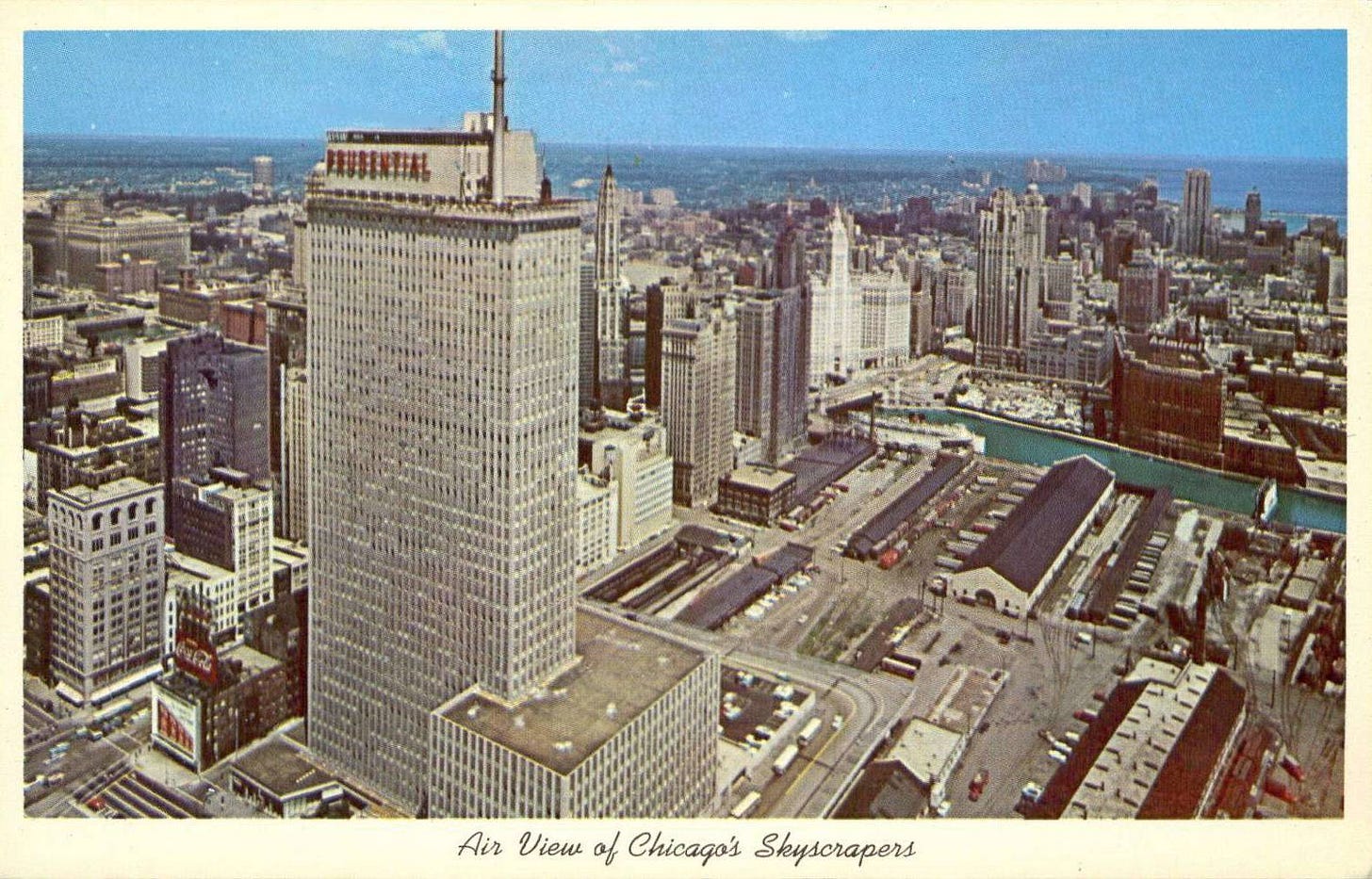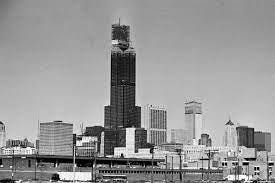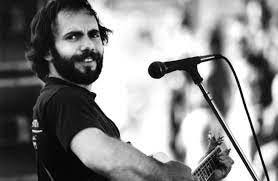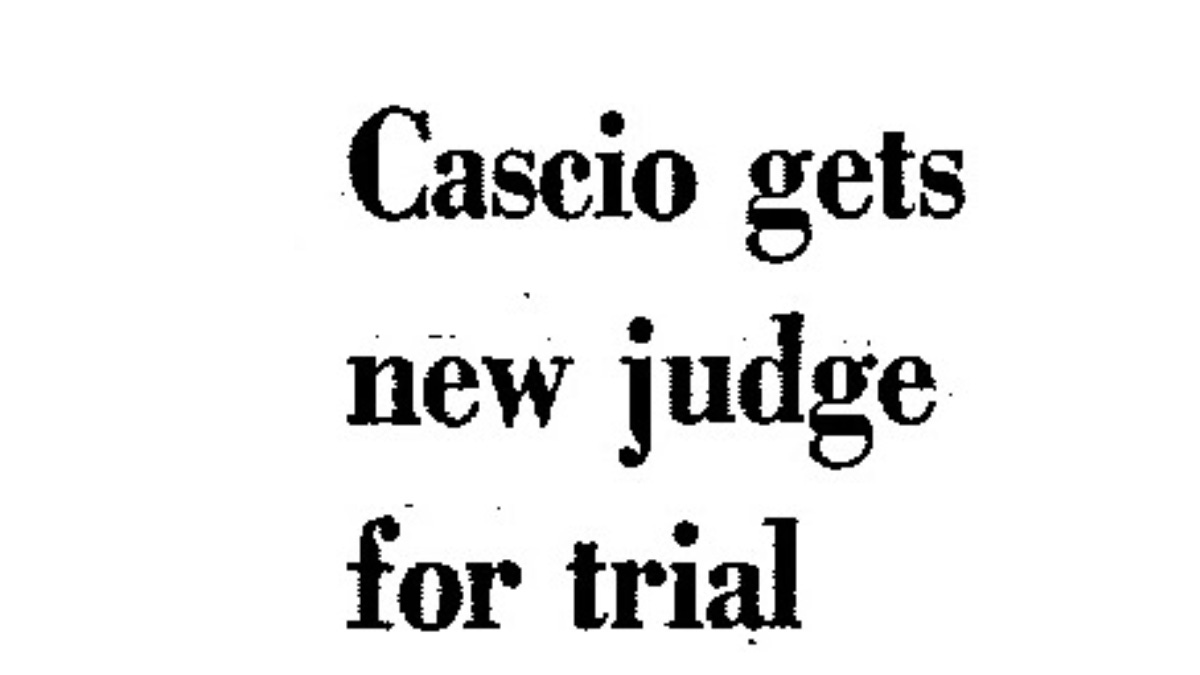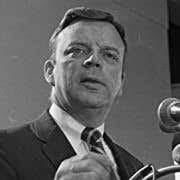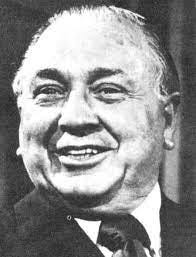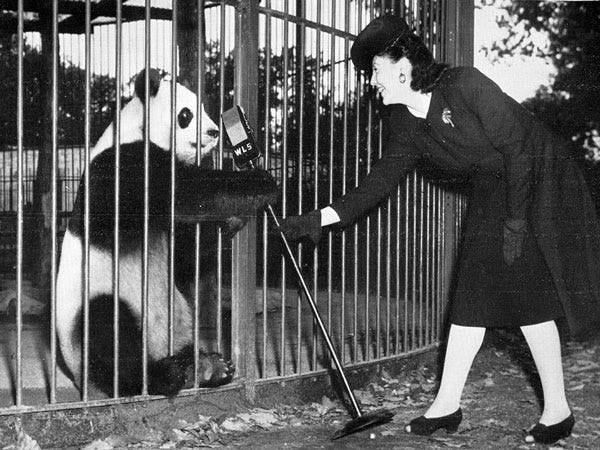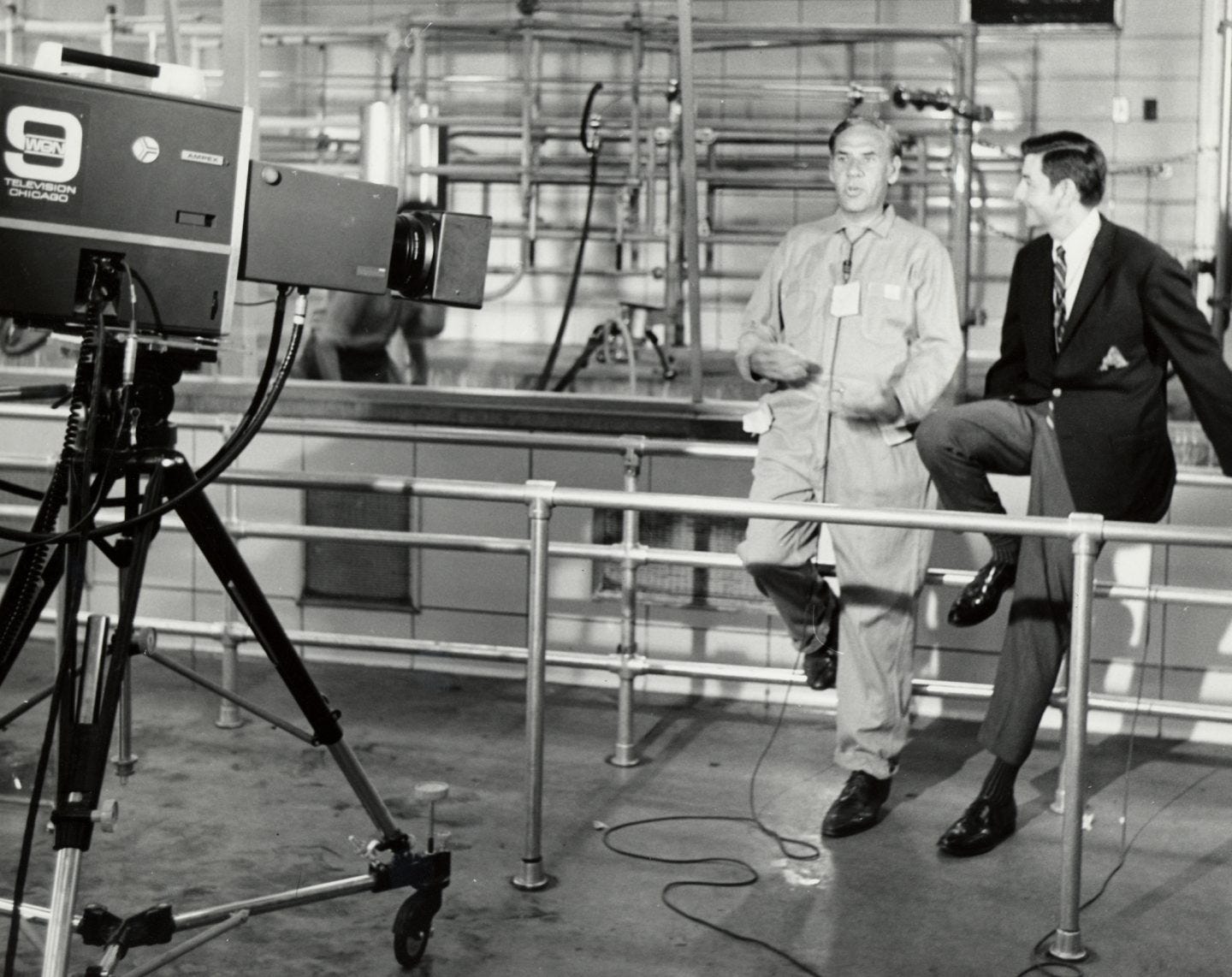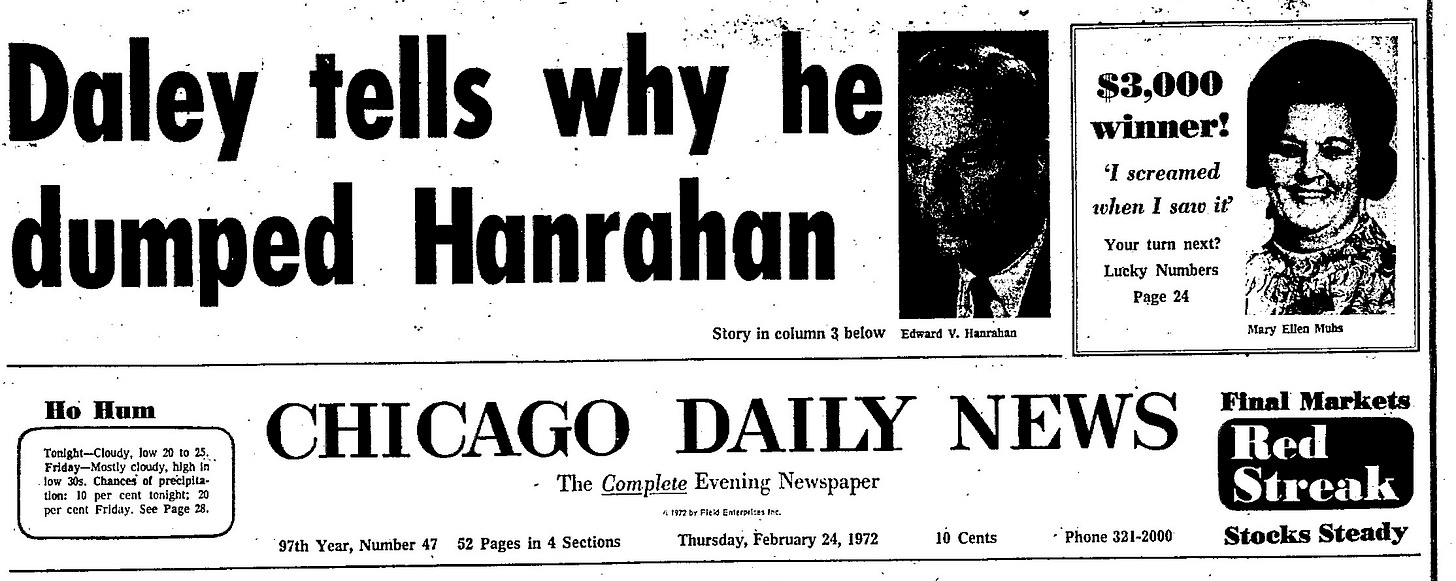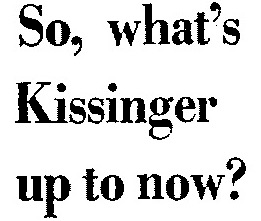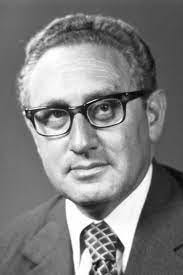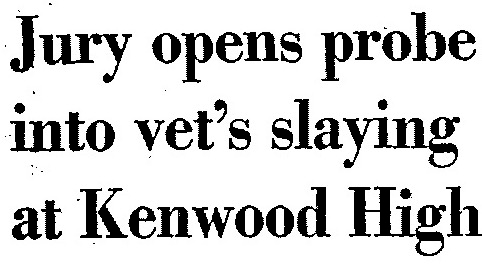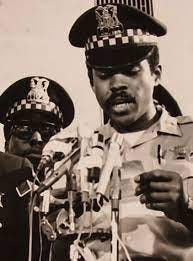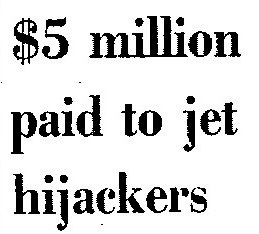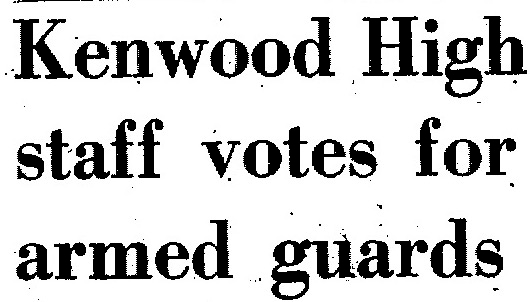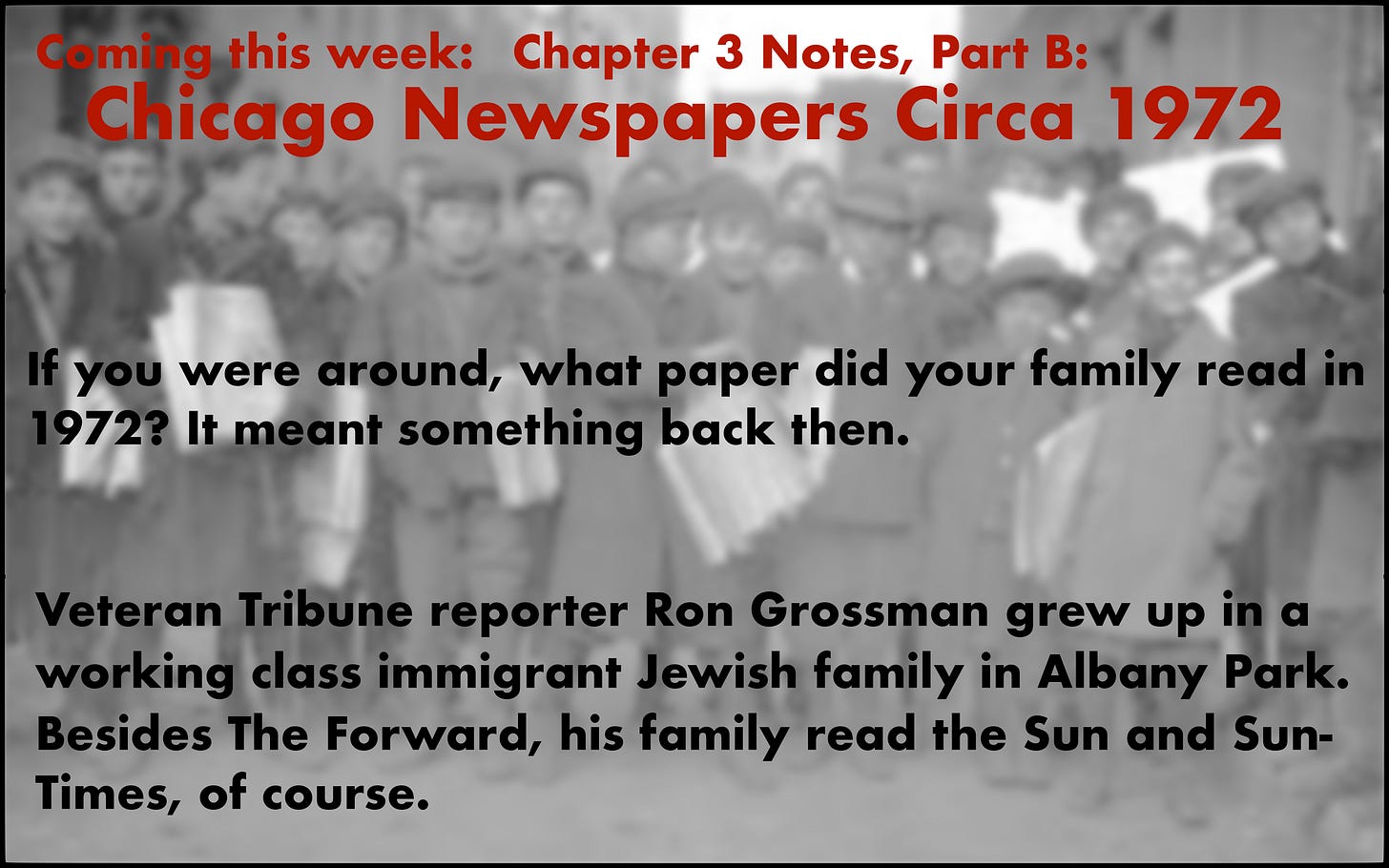To access all website contents, click HERE.
Why do we run this separate item peeking into newspapers from 1972? Because 1972 was part of the ancient times when everybody read a paper. Everybody, everybody, everybody. Even kids. So Steve Bertolucci, the 10-year-old hero of the novel serialized at this Substack, read the paper too—sometimes just to have something to do. These are some of the stories he read. If you’d like, keep up with the 1972 papers every day on Twitter, @RoselandChi1972.
February 21, 1972: The Mighty IC
Chicago Tribune
by Thomas Buck
Nine of the top IC executives agreed to talk with Tribune transportation reporter Thomas Buck, apparently hoping to put a good spin on the IC’s current sorry state. Among other strange things about this story: None of the executives are identified by name, but Buck never calls them “anonymous.”
Recap: The Illinois Commerce Commission held two hearings in January and February into the IC’s recent record, after 18 reported serious delays in the last four months of 1971 alone. Part of the problem, the ICC learned, is that the IC’s new double-decker cars, slowly being added into service, use far more electricity than the old cars. The new double-deckers have been shorting Commonwealth Edison circuit breakers when they start.
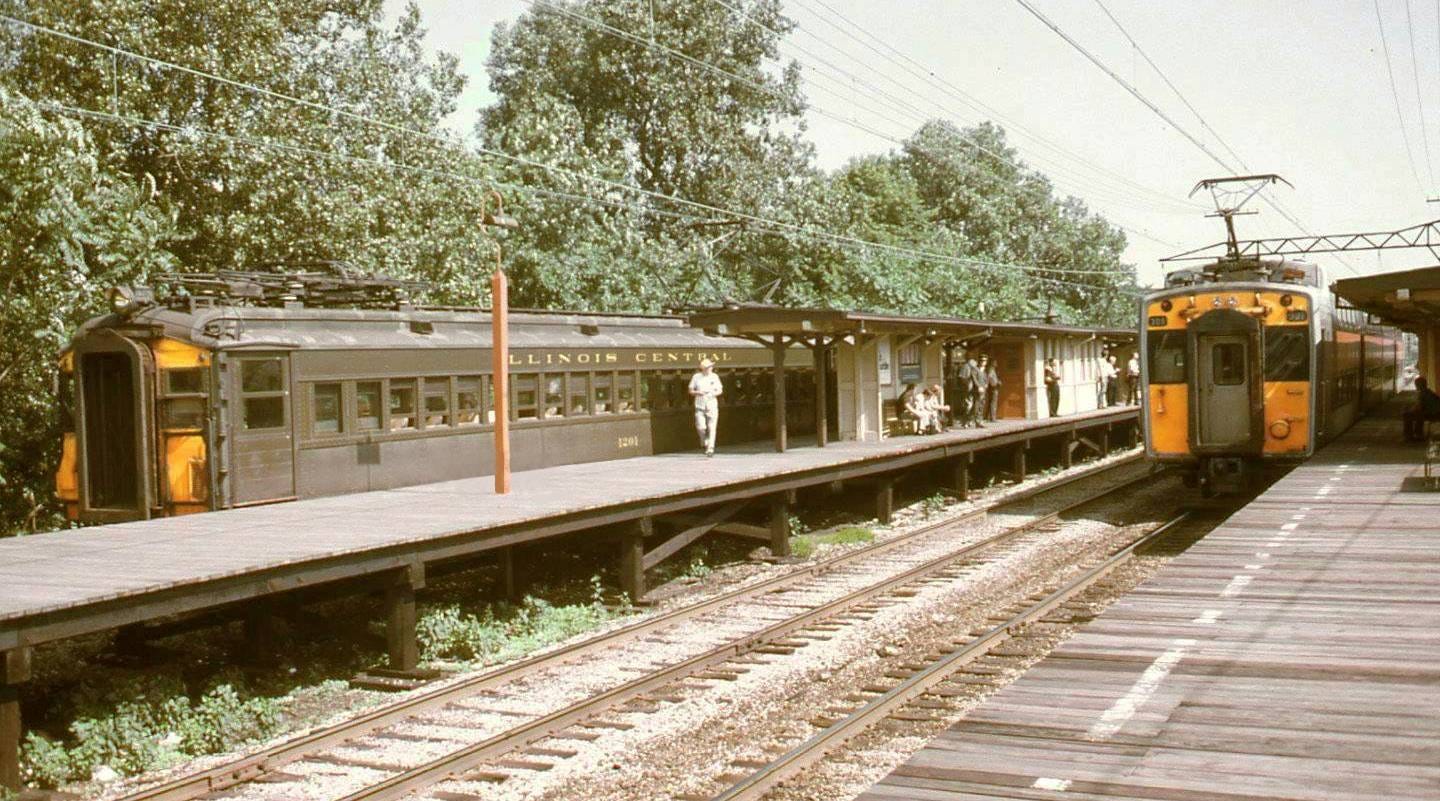
The delays continue in 1972, including:
About 8,500 IC passengers were late to work on January 8 when trains were up to an hour behind, after a car motor assembly jammed in Hazel Crest.
Subzero temperatures on January 15 froze switches and broke power lines and rail ties, delaying trains up to three hours. An IC spokesman said workmen were working around the clock, “and some are so tired they have cried.”
On January 28, 75 trains were delayed “for a variety of reasons”—the worst delay so far.
On February 11, a switching problem at 11th Place during morning rush hour caused a 30-train back-up, making 12,000 passengers up to 23 minutes late for work.
The over 38,000 daily riders on the IC “are suffering thru the worst winter the railroad has experienced in its 116 years of providing commuter service for Chicago’s South Side and south suburban area,” Buck writes today. IC passengers are “plagued...by the almost daily irritation of stalled trains”.
But the men who run the IC “want the public to know that they are equally as irritated and frustrated.” They “admit that further delays and breakdowns in operations may well be in store…for some time to come.”
But the IC executives think this rocky period will be over by next winter, when 130 of the new double-decker, air conditioned cars will fully take over for their 46-year-old predecessors. Even though the new cars have caused delays by short-circuiting Commonwealth Edison breakers, the IC says the old cars have caused “most” of the problems due to frequent breakdowns—and because the old cars have no telephone or radio equipment to communicate with control centers during those breakdowns.
Finally, at the end of the article, reporter Buck discloses a “compounding” factor in the IC’s troubles— “a major decision made four years ago by the management of Illinois Central,” combined with “a delay in the delivery by the manufacturer of the new fleet of modern cars.”
That “major decision”? The IC managers, knowing they were about to get a batch of new train cars, “decided that no major overhaul work or other major repairs would be made to the old commuter cars. Instead of spending money to rebuild the old cars for 10 to 15 more years of operation, the Illinois Central officials specified that the cars be kept running on a safe basis at a minimum of maintenance expense.”
Reporter Buck charitably likens the IC to the owner of an old car “who realizes he cannot afford to buy a new auto for another year or two.”
The IC made the decision to skimp on repairing its old train cars after the Chicago South Suburban Mass Transit District was formed to qualify the company for federal funding to buy new ones. The federal government is paying 2/3 of the cost for the new double-deckers, while the IC pitches in $13 million.
Trib reporter Thomas Buck is too polite to conclude that the IC’s cheapskate move came back to bite the railroad in its big metal ass.
The closing quote, from a still-unnamed executive:
“We realize that it is a heck of a way to run a railroad, but the 500 men of the Illinois Central engaged in the commuter operations are doing the best they can under the circumstances.”
February 21, 1972
Daily News: Nixon, Mao meet
Weather good--but the food!
By Peter Lisagor
Exotic feast all warmth
By Don Bacon
Americans were considerably less sophisticated diners in 1972, including American reporters.
The Daily News starts the historic Nixon In China coverage with a short article above the masthead on President Nixon meeting Mao Tse-Tung, “only a few hours after Mr. Nixon became the first American Chief Executive ever to set foot on Chinese soil.”
The only actual news from the big meeting with Mao: Secretary of State William Rogers “was conspicuously absent.” National Security Advisor Henry Kissinger accompanied Nixon instead.
On to the banquet, where “Chou, in a surprisingly warm toast at an official dinner in the Great Hall of the People, said Mr. Nixon’s visit offers both countries the chance “to seek a normalization of relations between the two countries.”
Nixon’s toast “called for ‘friendship between our peoples which can lead to peace for all the world.’”
But reporters weren’t impressed by the food.
Peter Lisagor: “Chou’s remarks during the fabled Chinese banquet, which threatened the American guests with gout, appeared to represent a great leap forward.” In the lede to an accompanying story, Lisagor writes “the food is something less than sensational”.
Don Bacon’s front-page article that is supposed to be about the food is no better.
“Course after course, the food was brought to the banquet tables. Roast duck, chicken, pork, sausage, stewed and fried prawns, smoked fish, and other things for which the Chinese volunteered no identification and Americans dared not ask.”
“President and Mrs. Nixon sampled it all, using chopsticks with admirable skill. All the American party…also did their best with chopsticks. Many a necktie was ruined by dribbling fish sauce”.
February 21, 1972
Chicago Daily News: Allen misses Sox opening
Nine Hose players unsigned
By John P. Carmichael
Carmichael reports nine players unsigned, but almost the entire article is, of course, about one particular unsigned player.
“Sarasota, Fla--The White Sox opened spring training Monday, with a notable absentee, slugger Dick Allen. Allen was celebrating Washington’s Birthday in his own style elsewhere, as manager Chuck Tanner sent 36 Sox through their opening loosening-up exercises.”
“Neither Tanner nor general manager Stu Holcomb knew where he was or when they would see him. Allen is one of nine Sox hold-outs and may be the most difficult of them. Holcomb says he made Dick a good offer (reportedly $120,000) ‘and that’s it.’”
“Allen supposedly said yes, then changed his mind.”
WHOOPS—Time got away from me. But it really will be this week, on Wednesday.
February 22, 1972
Chicago Daily Defender: Stories clash on killings
The Defender prints interviews from eyewitnesses in two fatal police shootings of Black men last week, both contradicting official police accounts.
Louis Redmond, 21, was shot by two officers on Feb. 5 at the corner of Chicago and Drake. Police said they stopped Redmond to question him about a pattern of crimes in the area, and Redmond pulled a gun on them.
Former Marine Cornelius Fitzpatrick, 21, was shot inside Kenwood High School by an off-duty Chicago cop working as a security guard. That officer claimed Fitzpatrick scuffled with him after being asked to leave, and that he had a gun.
The Afro-American Patrolmen’s League and the U.S. Justice Department are investigating both cases and interviewed witnesses. The Defender quotes one eyewitness from both cases, apparently directly from testimony they gave to the AAPL.
The Redmond witness said the police pulled up in a squad car, asked to talk to Redmond, and asked him where his gun was. When Redmond denied having a gun, “They pushed him, and one officer grabbed hold of him. When he pulled away, the police officer shot him. Lou fell face down on the ground, and the officer shot him all the way down to the ground.”
The Fitzpatrick witness says he went with Fitzpatrick to Kenwood High School to get information from a teacher on going to a four-year college. He says they were talking to some students when one “plain clothes policeman” came up and tried handcuffing him (the witness) for trespassing.
The witness says Fitzpatrick refused to be handcuffed to him, and they all walked down the hallway as the officer continued trying to handcuff the witness. The witness resisted, but after the officer handcuffed him anyway, they all stopped in the hallway. “Cornell stopped. He didn’t resist anymore. He had his hands down to his side.”
The witness said another “white plainclothes officer” ran up. “I heard a gunshot, and Cornell fell to the floor. I saw a puddle of blood. The officer that shot him dragged Cornell over into the corner where I was standing. Then the other officer that shot Cornell said ‘I guess we better call an ambulance.’”
February 22, 1972
Tribune: White Sox Go Thru Unscheduled Drill
By George Langford
The earlier Daily News coverage of the Sox’s first day of spring training covered almost nothing but Dick Allen’s absence. The Trib barely mentions him today, unfortunately.
“Sarasota, Fla. Feb. 21--Chuck Tanner saw the 36 uniformed members of the White Sox this morning, looked up at the cloudless Florida sky and figured it was a shame to waste such delightful conditions,” writes Langford.
Luckily I have Steve’s 1972 Sox baseball cards:
“Thus the Sox, who were only supposed to check in with management this morning for physical exams and uniforms, found themselves instead going through a 90-minute workout.”
But there are 12 players missing, and 11 “are unhappy about contracts.” GM Stu Holcomb is pacing and waiting for Jay Johnstone to arrive for negotiations.
“Holcomb also had a telegram from Vicente Romo. The message was in Spanish but as near as anyone can figure out, Romo, who has agreed to terms, was stranded in his home in Sonora, Mexico without air fare to Florida.”
Chuck Tanner almost didn’t make it for spring training either. After dropping his son off at Edinboro State College, and Tanner got “stuck in a snowdrift on the Pennsylvania Turnpike”.
White Sox owner John Allyn “won the best-dressed award today with his tailor-made jacket-and-pants made entirely of double-knit uniform material from the White Sox new red pinstripes”. I’m sure Dick Allen looks better in this material:
Finally: “Tanner said he visited Allen’s home in Wampum, Pa. just last week and had a ‘delightful conversation’ with the former National League slugging star but said no headway was made on salary agreement.”
February 22, 1972
Chicago Daily News: Terrorists free RFK son
Five hijackers boarded a New Delhi - Athens Lufthansa flight at the last minute, then used guns to force the pilot to land in Aden, South Yemen instead.
Of the 188 passengers and crew taken hostage, the only name we get is Joseph Kennedy III, eldest son of RFK. Lufthansa is telling everybody that nobody told them to keep Kennedy’s reservation a secret. But Kennedy doesn’t look like the target.
The hijackers’ spokesman said they’re “members of a group called the Organization of the Victims of Israeli Aggression, a group not previously known in Arab capitals.” This new group is protesting West German aid to Israel. “’We promise to continue our struggle in the occupied lands (Israel) until the occupation ends,’ the terrorists said. ‘The Nazi state will never rest in peace.’”
Before the flight, the airline didn’t search the hijackers or their baggage, even though they booked their seats only one day in advance.
After the plane landed in Yemen, the hostages were held at gunpoint on the plane while the hijackers negotiated with authorities. Oh, and: “The terrorists rigged the plane with explosives.”
The hijackers released the passengers “after a tense three hours of negotiation” with Yemeni officials. They kept the sixteen crew members as hostages.
February 22, 1972
Chicago Daily News: 3 legislators demand quiz in slaying at Kenwood High
By Diane Monk
Cornelius Fitzpatrick's fatal shooting at Kenwood High School is being investigated by the ACLU, the U.S. Justice Dept. and the Afro-American Patrolmen’s League.
Three Illinois state legislators, plus Ald. Leon Despres (5th) and Al Raby, chairman of the Hyde Park-Kenwood Community Conference, sign a letter also demanding an investigation by a special coroner and coroner’s jury.
“The group also urged that Bernard Martin, the off-duty policeman who killed Cornell Fitzpatrick, 21, be removed from active duty until a complete investigation…has been completed.” Martin said Fitzpatrick pulled a gun, and police said they recovered a .22 caliber pistol.
NOTE: It appears Fitzpatrick’s full first name is “Cornelius,” but he is sometimes referred to as “Cornell.”
Police spokesman says Martin isn’t suspended because “There is no evidence so far that the officer operated in an unreasonable fashion.”
Three students who witnessed the shooting say Fitzpatrick didn’t have a gun. At least one school administrator says he did.
“Fitzpatrick was a student at the Olive-Harvey branch of the Chicago City Colleges. Earlier on the day he was shot, he had visited Kenwood and asked Harry Simmons, an accounting teacher, for help with some accounting problems.”
February 22, 1972
Chicago Daily News: Rating soars as Sammy visits Archie
“All in the Family, the nation’s top-rated television show, grabbed a whopping 71 per cent share of the audience for last Saturday’s Sammy Davis episode, according to overnight Nielsen ratings for New York Ctiy.”
“CBS…is now projecting a national audience of 61 million persons for the episode in which Davis and the program’s hero, Archie Bunker, got together.” Kind of odd that Archie is described as the “hero” when he’s the butt of every joke.
I don’t know why the News’ doesn’t describe the real point of the episode: Sammy surprised Archie at the very end by giving him a big kiss on the cheek. You don’t have to worry about giving a spoiler alert in 1972, because nobody will be able to see this episode again until it randomly shows up as a rerun over the summer. It’s not like it’s on Netflix and some readers will watch it over the weekend.
Context: The birth of Little Ricky on “I Love Lucy,” usually touted as the number one television draw of the mid-20th century, got a 71.7% Nielsen rating.
February 22, 1972: The Mighty IC
Chicago Daily News
by Jay McMullen
The Greater North Michigan Avenue Association sent Mayor Daley a telegram asking him “to halt the planning for a $9 million Columbus Dr. bridge over the Chicago River.
He means this bridge.
And yes, there were telegrams in 1972—but people generally used them on purpose as an anachronism, to make the point that their message was REALLY important.
“The bridge…would link the Illinois Central air rights area with the Near North Side.”
The Columbus Drive bridge is already slated for completion in 1975, but association president Stanley Goodfriend asked Mayor Daley to delay awarding the contract for designing it “Until the association has a chance to examine a traffic study of the area made for the city by the consulting firm of Barton-Aschman Associates.”
Goodfriend says the city promised to let the association study the traffic situation before going ahead with the Columbus Drive bridge. He claims the bridge, combined with extending Columbus Drive to Ontario, “would clog the Near North Side with traffic and force the cancellation of plans to build several new buildings in the Ontario-Ohio area.”
Goodfriend scores a solid 50% for seeing the future. We all know he was right on #1, but manifestly wrong on #2.
I suppose the Columbus Drive bridge can only make the Illinois Central Railroad land on the south bank of the river, the former site of Fort Dearborn, that much more valuable. Here’s what that vast area between the Prudential Building and the Chicago River looked like in 1960, before the IC started selling off the air rights—and before Columbus Drive extended across the river and into Streeterville.
But there’s more!
Chicago Tribune: editorial
Yesterday, the Trib ran a stunningly sympathetic story by transportation reporter Thomas Buck on the Illinois Central’s ridiculous mismanagement. The IC’s top managers admitted that after getting federal money to cover 2/3 of the cost of a new fleet of train cars, ordered in 1969, they decided to stop doing any major repairs on the old ones. And they said the major source of delays is the old cars breaking down—exacerbated by the fact that the old cars have no telephone or radio equipment to communicate breakdowns with the IC control centers.
Today, the Trib runs a stunningly sympathetic editorial. “In an unusual interview with TRIBUNE reporter Thomas Buck, officials of the line admitted that their service has been pretty poor these past few months,” writes the Trib editorial board.
The editorial ticks off the IC’s problems—sub-zero temperatures, dilapidated old cars, delivery of the new cars a few months late. Plus: “Another problem has been the line’s antiquated communications system. The only way train crews have been able to report trouble is to get off the train and use the public pay phones in the nearest station. Often there aren’t any phones, thanks to vandals and at least one angry commuter, who tried to phone in a complaint about the service and ended up ripping the phone off the wall.”
The editorial does not mention that the IC executive admitted they decided in 1969 to stop fully repairing the old cars. Instead, the Trib emphasizes that the IC officials promise service will improve as soon as all the new double-decker train cars are in service, some time this summer.
“In the meantime, the railroad asks its customers to hang on. No one can expect the commuters to be joyous, but this refreshing kind of candor is certainly preferable to the usual official attitude, in which everyone pretends that nothing is going wrong.”
February 23, 1972
Chicago Daily News: Richton Park mayor explains car deal, blasts Royko story
By Diane Monk
Yesterday, Mike Royko wrote about suburban Richton Park. Village trustees charged, among other things, that the mayor took a village police car and traded it in toward a new car for himself.
At last night’s Richton Park village board meeting, Mayor Kenneth Clark said he “’donated’ $400 to the village police department and took in return a squad car that ‘not even a junk dealer would buy.’”
Royko reported that Clark got $2,044 as a trade-in for the police car. That’s $13,798 in 2022 money. “The mayor denounced Royko’s column as a ‘crock of garbage,’ and closed discussion on the matter after 15 minutes or so,” writes the Daily News’ Diane Monk.
About 100 residents of the tiny suburb packed into the meeting room. “Many in the audience were carrying copies of Royko’s column.” Clark eventually admitted that he did trade the police car in at a Peotone dealer.
A resident asked if it was true that some village building inspectors work for Mayor Clark, who is a contractor, as Royko reported. “’I swear under oath that no electrical inspector has ever been on my payroll,’ Clark said.” Monk notes that the question was about building inspectors, not electrical inspectors.
Then the village electrical inspector “marched to the front of the room and declared, ‘Here’s my badge. I’m resigning.’” The ex-village electrical inspector then “cornered a Daily News reporter and urged, ‘Give the mayor a good break. He is a wonderful man.’”
Diane Monk must have had quite a time at this meeting!
“Clark refused to discuss the matter further with reporters and would not comment on whether he employed any building inspectors.”
February 23, 1972
Tribune: Hijackers Free Son of RFK
Tribune Wire Services
The latest ’72 hijacking is part over--the Kennedy part of it, anyway.
“Aden, South Yemen, Feb. 22--Arab hijackers freed all 172 passengers aboard a commandeered German jumbo jet today, including the tired and ruffled eldest son of the late Sen. Robert Kennedy.”
“’It wasn’t the worst moment of my life; I’ve been scared before, but it has never lasted as long as this’ said Joseph P. Kennedy II, 19.” The hijackers took over the plane as it left New Delhi for Athens and forced the flight to Yemen. Kennedy said it was scary when the pilot said they were low on fuel, and when the hijackers wired the plane doors with explosives.
The passengers were held for 18 hours on a “sweltering” runway. The 16 crew members are still held hostage. Some witnesses said one passenger was pistol-whipped. Now the hijackers say they’re the “Zionist Occupation Victims Organization” with headquarters in the Gaza Strip. They demand “the release of Arab political prisoners held in West German jails in exchange for the return of the aircraft and crew.”
BTW, this is not the anti-vaccine Kennedy--that's RFK Jr. This is RFK's oldest son, who served six terms in Congress in Tip O'Neill's old seat. This Kennedy had a rather tumultuous youth, though, not even including this skyjacking. But I guess that’s just business as usual for a Kennedy.
February 23, 1972
Sears finds 2 ways to cut TV ‘ghosting’ by new tower
Hold on Chicago, Sears Tower is on its way!
Oh, and by the way, you might not be able to watch TV anymore.
Sears President Arthur Wood “said 18 months of research by electronics scientists and consulting engineers disclosed that the ghosting problem could be eliminated or minimized” by 1) using “signal-absorbing material” above the 67th story of what will be 110 stories, and 2) “Special windows with wires or metal tabs imbedded between two panes of glass.”
Younger Readers: Wondering what "ghosting" means? This is pre-cable technical TV talk. Everybody had antennas on their roofs, and Sears Tower was expected to screw with quite a bit of TV reception. With “ghosting” you would get a picture on your TV, but kind of of multiple, overlapping pictures. It would suck.
Ald. Bill Singer (43rd) and the Illinois Citizens Committee for Broadcasting actually filed suit with the FCC to halt construction of Sears Tower “until it could be shown not to cause interference” with TV reception in Chicago homes.
Sears President Wood “flatly ruled out any reduction in the height of the building.”
February 23, 1972
Daily News: Allen, Sox agree on top club pact
By John P. Carmichael
A giant sigh of relief rolls across the South Side.
Dick Allen’s “financial agent” and the Sox have come to terms, writes Carmichael. Allen is now “the highest-paid player in the club’s history.”
GM Stu Holcomb won’t reveal Allen’s number, but Carmichael says it’s “something like $125,000”. Holcomb hopes Dick Allen will come to spring training by Friday or Saturday.
“Manager Chuck Tanner hasn’t decided what position Allen will play this year, but he’s made up his mind that Dick will bat third. ‘The reason is very simple,’ said Tanner. ‘He’s one of the best baserunners in baseball and, up in front, he’ll give us three fast men batting ahead of Bill Melton. Allen’s lifetime average is around .300 and that means he’s on base often enough to make it count big.’”
“Allen had years in Philadelphia when he scored more than 100 runs a year while batting in as many, which makes him one of the best double-threats in the game….The thing Tanner likes about this arrangement is that both Allen and Melton are right-handed hitters who can hit right-handed pitching.”
“To cap things off as Chuck hopes, Carlos May, a left-handed hitter, will swing from the No. 5 spot.”
February 23, 1972
Daily News: Cascio gets new judge for trial
Remember when Ald. Bill Singer (43rd) brought Mike Royko out to the Lincoln Park [Pirate] towing facility at 1301 W. Fullerton to show him they’d put a gate across the alley in between two of their parking lots?
Lincoln Towing owner Ross Cascio is in court today about that. Ald. Singer filed suit claiming Cascio “illegally fenced an ally between N. Southport and N. Lakewood adjacent to the towing service”.
Remember, this is THE "Lincoln Park Pirate" from the famous 1972 Steve Goodman song. When's the last time you listened to it?
"The streetlamps are on in Chicago tonight
And lovers are gazing at stars
The stores are all closing
Bilandic's been chosen
And Daley is dozing and Cascio is counting the cars
....
To me, way-hey
Tow them away
The Lincoln Park Pirates are we
From Wilmette to Gary
There's nothing so hairy
And we always collect our fee"
Thank Mike Royko for that song--his columns about infamous Lincoln Towing Services, starting in 1967, made owner Ross Cascio almost a household name.
Here’s Mike on January 19, 1972, describing how Lincoln Park Towing charged twice the going rate for impounded cars: “To intimidate those who objected, Cascio hung bats, blackjacks, chains and other pacifiers on his office wall. And a huge, red-eyed, black-tongued dog encouraged people to pay.”
In court today, Cascio won his request for a new judge, because Associate Circuit Court Judge Wallace Kargman’s son “was a candidate in an aldermanic election in which Cascio became an issue.” (Kargman’s son ran against Ald. Dick Simpson, then and now a UIC political science professor, who won the election and started his first term in City Council in 1971.)
“If convicted, Cascio could be fined $200 a day until the fence is removed.”
TOMORROW in the weekly compilation of MIKE ROYKO 50 YEARS AGO TODAY, Mike pokes the mobster who used to run Eddy Foy’s Club, a strip joint on South Wabash. Come with us on a deep illustrated dive into all the Chicago history rabbit holes this column opens up! The best way to make sure you don’t miss it: SUBSCRIBE FOR FREE!
February 23, 1972
Daily News: Keep tax returns, Berg tells income
By Charles Nicodemus
“Fresh controversy and surprises erupted Wednesday in the hotly contested three-way contest for the Democratic nomination for Cook County state’s attorney.”
Former Traffic Court Judge Raymond Berg, Mayor Daley’s officially slated candidate to replace indicted incumbent Ed Hanrahan, said he’d release his tax return. Then an hour before the press conference, he changed his mind.
And indicted State’s Attorney Ed Hanrahan refuses to go through what is in 1972 a new procedure--talking to the Chicago Bar Association so they can rate him as qualified or unqualified.
Hanrahan says the CBA is “prejudiced against him” because he’s under indictment for the 1969 predawn state’s attorney police raid that killed Fred Hampton and Mark Clark.
But here’s the best part: “Mayor Richard Daley, in Washington to testify before a congressional committee…was asked by Robert Gruenberg of The Daily News if he would support independent Democrat Donald Page Moore if Moore wins the State’s attorney’s primary.”
Recall Daley finally dropped Hanrahan from the official Democratic slate when it became clear Hanrahan couldn’t quash his own indictment--and Daley picked Raymond Berg to replace him. Daley didn’t pick Moore at all.
“Daley, who has been criticized repeatedly by Moore, answered, ‘We’re all Democrats. We’ll support any Democrat if he’s nominated. We’re all part of the great Democratic Party,’ the mayor said.”
And just like Mike Royko said in his column yesterday, Berg is inviting the whole city to come to his Andersonville home at 1640 N. Farragut on Saturday for coffee.
February 24, 1972
Chicago Daily News: ‘Chicago the ideal place’
Ogilvie, Stone seek pandas
By Robert Signer
On his current historic trip to China, President Nixon and Chinese Premier Chou En-lai agreed to an exchange: China will give the U.S. two giant pandas, and the U.S. will give China two musk oxen.
Illinois’ two top Republicans, Gov. Richard Ogilvie and millionaire W. Clement Stone, are determined to get those pandas for us. Ogilvie has written Nixon about it already.
Ogilvie “pointed out that the zoo had made arrangements to purchase a giant panda in 1958, only to have the U.S. State Department block the transaction under the ‘trading-with-the-enemy’ laws.”
At this time, “Only 17 of the huge animals…are known to have been in captivity outside China.” Brookfield Zoo has had three pandas--the first one in the U.S., and the last. The last one died 19 years ago. Reporter Robert Signer tells us how that first panda got here:
“A.T. Steele, a former foreign correspondent for The Daily News in China, wrote that giant pandas were not rare and the Chinese were amused at the high prices paid for them.”
“This prompted the zoo to challenge Col. Frank Knox, then publisher of the paper, to come up with a panda. In 1939--17 months and 8 days after the challenge was issued--Knox presented Mei-Lan to the zoo as a Chinese Boy Scout drum corps played. Mei-Lan died in 1953 after more than 14 years in captivity.”
Oddly, Brookfield Zoo thinks Mei-Lan was here by 1938. This picture is from the Chicago Zoological Society website, captioned “Giant panda Mei-Lan is being ‘interviewed’ by Martha Gowdy on WLS Radio in 1938.”
W. Clement Stone is “the Republican Party’s leading benefactor in Illinois and an exponent of ‘Positive Mental Attitude’”.
BTW, you used to hear about W. Clement Stone all the time, because he’s a native Chicagoan who became a real Horatio Alger story. Stone’s father died when he was a child. He started out as a newsboy on the South Side, quit high school to sell insurance, then founded his own insurance company—which eventually became Aon Corporation. You may have noticed the fourth-tallest building in the city on the north end of Grant Park. That building was originally the Standard Oil Building, but now it’s Aon Center.

Stone was known for his obsession with positive thinking. He wrote “Success Through a Positive Mental Attitude” with Napoleon Hill in 1960. He also founded the group that backed adding “under God” to the Pledge of Allegiance in the 1950s. Stone died in 2002.
Another important point not mentioned in this Daily News article, because I think it was unknown at the time: Stone gave Nixon $10 million for both his 1968 and his 1972 presidential campaigns. You’d think that would be enough to get Chicago a panda, or two.
Contacted by The Daily News regarding the pandas, Brookfield Zoo director Peter Crowcroft said he was on it. But Lincoln Park Zoo director Lester Fisher says he won’t make a bid yet for the pandas, because typically foreign governments give animals to the National Zoo in Washington, D.C.
“But, he said, if it appears that the National Zoo won’t get the pandas, ‘We’ll put our oar in and try to get them. But for the time being I’m not going to stomp about it.’”
Lester Fisher was also a Chicago celebrity. He died just last year at 100. Fisher joined Lincoln Park Zoo as its first veterinarian in 1947, then succeeded Marlon Perkins as director in 1962, and stayed for 30 years. As his remembrance at Lincoln Park Zoo’s website notes, “He became a Chicago household name through his many appearances on WGN.”
If you grew up in Chicago, chances are you saw him on, for instance, on the Ray Raynor show.
February 24, 1972
Chicago Daily News: Daley tells why he dumped Hanrahan
by Jay McMullen
I don't think anybody was wondering why, since it’s so obvious.
As regular TCD readers surely know by now, Cook County State’s Attorney Ed Hanrahan is under indictment for conspiracy to obstruct the investigation into his office’s predawn police raid in 1969 that killed Black Panthers Fred Hampton and Mark Clark. I can type that sentence in my sleep at this point.
“Under indictment” isn’t a great campaign slogan. Still, Daley let Hanrahan onto the official Democratic slate for the primary and didn’t kick him off until Hanrahan lost his last appeal to the Illinois Supreme Court to toss the indictment out. Then and only then did Mayor Daley dump Hanrahan, replacing him with now former Traffic Court Judge Raymond Berg on the morning of the day that nominating petitions were due in the County Clerk’s office in order to get on the ballot. Thus, Machine flunkies spent a frenzied day in City Hall, the County Building and elsewhere forging signatures to get Berg on the ballot, an ongoing scandal that was broken by Mike Royko on the front page of the Daily News the very next day.
But OK—why does Mayor Daley now say that he dumped Hanrahan?
Daily News reporter Jay McMullen, the future husband of future Chicago Mayor Jane Byrne, reports that Daley “spelled out his reasons” for the first time “at a meeting of the Cook County Democratic Central Committee that was billed as an old-fashioned pep rally but turned into a mournful discussion of the party’s woes.”
“The session was closed to the press but The Daily News learned of the mayor’s comments after the meeting ended. Daley said Hanrahan had told Democratic slatemakers his appeal to the Illinois Supreme Court involving the raid case was ‘unbeatable.’”
“‘His case turned out to be beatable,’ the mayor was quoted as telling the meeting in the Sherman House. The Mayor said the volatile prosecutor’s stubborn attitude surfaced when party leaders asked that he request an early trial on the conspiracy charge….The state’s attorney repeatedly refused the request, the mayor said, presumably because he wanted to exhaust all legal strategies in the case.”
At the meeting, McMullen reports, U.S. Rep. Roman Pucinski “mentioned that some polls showed [new official Democratic state’s attorney candidate Raymond Berg] trailing in the race.”
But, writes McMullen, Pucinski “discounted the polls”:
“‘Lots of people polled in the polls don’t go to the polls on Election Day,’ the congressman was quoted as saying.” Is Pucinski a Chicago Yogi Berra?
February 24, 1972
Chicago Daily News: weather forecast on masthead
You know how people used to—and I guess they still do—talk about what the Google logo is doing on the Google website every day, because Google goes to the trouble of animating it in a million different ways based on current events? This is called the Google Doodle.
The headline above the daily weather prediction that appears to the left of the Daily News name, or “masthead” is sort of a no-tech early version of the Google Doodle. Yes, this is stretching an analogy. However, it is a little creative thing that you can count on seeing every day next to the name of an informational vehicle, so there is some similarity.
Today’s weather headline is quietly amusing: “Ho Hum” describes the forecast: “Tonight—Cloudy, low 20 to 25. Friday—mostly cloudy, high in low 30s. Chances of precipitation: 10 per cent tonight; 20 per cent Friday.”
February 24, 1972
Chicago Daily News: Nixon at the Great Wall
February 24, 1972
Chicago Daily News: So, what’s Kissinger up to now?
UPI
Remember, when Nixon got to China, he immediately met with Mao Tse-Tung—not with Secretary of State William Rogers, but with National Security Advisor Henry Kissinger.
“Where was Henry Kissinger? Reporters’ curiosity was aroused Thursday when the President’s national security advisor failed to join Mr. Nixon on his expedition to the Great Wall of China and vanished from sight.”
“They recalled that in July Kissinger secretly arranged Mr. Nixon’s trip to China, when he was said to have been recovering from an illness in Pakistan. Kissinger also demonstrated his talent for secrecy in a dozen secret Paris meetings with North Vietnam’s peace negotiators.”
However, Nixon’s press secretary Ron Ziegler says Kissinger is “working alone in the Nixons’ secluded guest house.”
“Ziegler spiked rumors that LeDuc Tho, North Vietnam’s chief political officer at the Paris talks, was in town and meeting with Kissinger.”
February 24 1972
Chicago Daily News: Jury opens probe into vet’s slaying at Kenwood High
by John Gallagher
“A county grand jury has begun investigating the Feb.15 fatal shooting of a Vietnam veteran by a policeman at Kenwood High School, the Daily News learned Thursday.
“A number of black groups and leaders have charged that witnesses to the shooting have said that the victim, Cornell Fitzpatrick, did not have a gun.”
“Renault Robinson, head of the Afro-American Patrolmen’s League, was subpoenaed to appear before the jury Wednesday and reportedly refused to give the jury names of witnesses.” The Daily News also “learned” that Robinson refused to give the witness names to the state’s attorney’s office.
Robinson appeared before the grand jury again Thursday, and then met with the Criminal Court Chief Judge Joseph A. Power. “Power reportedly also told Robinson and his attorney, Kermit Coleman, that Robinson could be found in contempt of court and sent to jail if he refused the judge’s order to testify.”
Bernard Martin, a Chicago policemen working as a security guard at Kenwood, claims Cornell Fitzpatrick scuffled with him when asked to leave, and pulled a gun. Several student witnesses said they didn’t see Fitzpatrick with a gun, while at least one school administrator claimed he did see a gun.
February 24, 1972
Chicago Daily Defender: Grand jury grills Renault Robinson
by Lucille Younger
“While all grand jury proceedings are secret by law, speculation has it” that the Cook County grand jury is asking Renault Robinson, head of the Afro-American Patrolmen’s League, about the recent shootings by white policemen of two Black men, Louis Redmond and Cornelius Fitzpatrick.
“The AAPL claimed that the shootings were ‘unjustified’ and, at best, the incidents deserved extensive investigation by the Police Department’s Internal Affairs Division and the U.S. Justice Department.”
“Robinson, who is assigned to Loop traffic, said that he suspected the grand jury wants information and notes taken from witnesses that the AAPL had talked to during the last three weeks. If the grand jury wants to launch an investigation, said Robinson, “it is only because it’s an election year coming up and the pressure of community complaint would be too much.’”
“According to Kermit Coleman, of the American Civil Liberties Union, the discovery hearings are being used ‘to prevent an honest investigation into the deaths of Redmond and Fitzpatrick.’ Coleman said if Robinson is forced to expose witnesses to the shootings who were interviewed by the AAPL…they would be harassed and ‘intimidated’ by the Chicago police and the state’s attorney’s police”.
February 24, 1972
Chicago Daily News: $5 million paid to jet hijackers
UPI
Remember the Lufthansa jet hijacked by terrorists who took 173 hostages, including the eldest son of deceased Robert F. Kennedy? The terrorists said they were with the “Zionist Occupation Victims Organization.” They forced the pilot to fly the plane to Yemen, landed, wired the plane with explosives and conducted negotiations for hours before releasing the hostages—but keeping the crew members for another day or so.
“The West German government paid $5 million in ransom for the release of the Lufthansa 747 jumbo jet and its 14-member crew”. A “special messenger sent from Bonn paid the money in Lebanon to representatives of a group belonging to the Front for the Liberation of Palestine.”
So skyjacking does work, every once in a while.
February 25, 1972
Chicago Daily News editorial: Those pandas belong here
“The competition to get those promised pandas from China is likely to be fierce,” starts today’s editorial. Too true: There have been no pandas in the U.S. since the last one died 19 years ago. Recall, President Nixon is on his historic trip to China, and Premier Chou En-lai has promised him two giant pandas in exchange for two musk-oxen.
“Chicago’s claim on the pandas…ought to outrank any of the others by a considerable margin,” writes the Daily News editorial board. “We admit to some pro-panda bias in the matter, harking back to the fact that the last giant panda to be exhibited here was donated to Brookfield Zoo by The Daily News in 1939. But any dispassionate analysis would surely arrive at the same conclusion: The pandas ought to come to Chicago.”
“On experience alone, Brookfield Zoo has a commanding lead. It was the first--and last--American zoo to house the rare animals, and one of the three exhibited there lived a record 15 years in captivity. Washington, D.C. gets too hot and muggy in the summertime for the furry creatures…If there is to be only a pair of pandas in the United States, their place is in what Mr. Nixon himself likes to describes as the ‘heartland of America.’”
The Daily News disassociates itself from the speculation that giving Illinois the pandas could get out Nixon votes in Illinois and essentially win Nixon re-election in 1972, then concludes:
“Please, Mr. President, send the pandas to Chicago, where they will have a lovely home, good care and affection.
February 25, 1972
Chicago Daily News: Kenwood High staff votes for armed guards
by Robert Signer
“Faculty members and staff at Kenwood High School have voted overwhelmingly in favor of authorizing school security guards to carry arms. A controversy has raged in the South Side neighborhood since a young Vietnam veteran was shot to death earlier this month by an off-duty policeman in the school at 5015 S. Blackstone.”
Only one person voted against allowing guards to have arms. The vote results were announced at a joint meeting between the school’s Parent-Teacher-Student Association and the teacher/staff group.
At the meeting, the group also voted to request a special deputy coroner and an investigation by a special coroner’s jury of Cornelius Fitzpatrick’s death.
February 25, 1972
Chicago Daily News: Elvis hits the road
February 25, 1972: The Mighty IC
Chicago Tribune
February 26-27, 1972
Chicago Daily News: Lu Palmer column
Pentagon stalls on ‘bad paper’ vets
“Issues having to do with the welfare of human beings have a way of dying out. For a little while, there is a lot of hue and cry, a lot of people express great concern—and then the issue is pretty much forgotten.
….“‘Bad paper,’ as the veterans call it, is the issue that is slowly fading away. (Military discharges that are less than honorable are known among vets as ‘bad paper.’)”
…. “Not only are their veterans’ benefits jeopardized by ‘bad paper,’ but even worse, the inability to produce an ‘honorable discharge’ becomes, in far too many cases, an insurmountable barrier to a decent job.”
…. “A valiant effort was made by the Concerned Veterans from Vietnam and the NAACP to bring about a change in the discharge system. They were instrumental in bringing bout reversals of a few bad discharges through the tedious military discharge review process. But they soon threw up their arms in despair because the effort was so ponderous, so slow and so expensive.”
“Barry P. Wright, national commander of the Concerned Veterans, warned that serious trouble lay ahead ‘if you keep on jiving us and giving us the fast shuffle.’
“He said that veterans are trained to kill and will use this training in civilian life if injustices against them continue to mount.
“There are organizations springing up—the Black Battery, the Black Army in Readiness and many others—and I want to say this to you: If they’re ever successful in linking up their communications and are able to synchronize their movements, this country is going to have one helluva time.”
…. “He made these statements at a hearing before the Black Elected Officials Conference in Washington sponsored by the Congressional Black Caucus last November.”
…. “Much was made of the discharge issue in 1971. Veterans employed the traditional techniques of the system in an effort to get relief from this oppressive discharge procedure. But a check with the Pentagon shows that nothing has changed. A Defense Department spokesman said: ‘We are constantly taking a look at this matter.’
“But that’s all they are doing. And they can’t see for looking.”
February 26-27, 1972
Chicago Daily News: Full page Polk Bros. ad
Do you dig spending time in 1972? If you came to THIS CRAZY DAY IN 1972 from social media, you may not know it’s part of the novel being serialized here, one chapter per month: “Roseland, Chicago: 1972” —FREE. It’s the story of Steve Bertolucci, 10-year-old Roselander in 1972, and what becomes of him. Check it out here.







